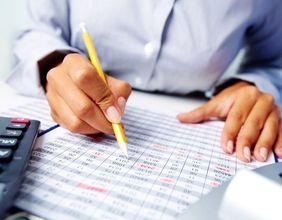Summary
- The banks need to find a delicate balance between treating the businesses fairly and instilling faith in them
- The banking system is expected to ensure that nothing should push back UK businesses on their path to recovery
- According to industry experts, the economy would move closer to a U-shaped recession if the capital stops to grow
Charles Randall, Chairman of the Financial Conduct Authority (FCA) has cautioned the banking sector of crisis like that of 2008. Businesses in the UK have piled up a lot of debt in recent times amid the unprecedented crisis induced by the novel coronavirus, which is mounting further pressure on the engines of the economy.
The chief of UK’s watchdog has hinted the banks regarding a surge in businesses, which are likely to default on their debts. He warned about the excessive pressure which could mount on the financial system and could eventually lead towards a financial crisis like that of 2008. Businesses have inevitably accumulated unaffordable debt during the coronavirus crisis. The banks must find a delicate balance between treating the businesses fairly and instilling faith in them.
The banking system needs to ensure that nothing should push back UK businesses on their path to recovery. The FCA boss said that the banks should invest in training of their debt arrears teams and implement control measures. In addition, he called for an appropriate dispute resolution system to be in place which could be used as an ombudsman or a grievance redressal mechanism to cater to a potential surge in a number of complaints.
According to UK’s banking industry body, around £38 billion was disbursed as loans under the government backed schemes to help more than 900 thousand businesses stay afloat during to the Covid-19 induced lockdowns and their catastrophic impact. This is only a one-third of debt which could lead to increased NPA’s (non-performing assets) for the banking sector. The remaining two-thirds of debt which accounts to nearly £107 billion lies with UK’s small and medium-sized businesses which could turn bad and lead to degradation of asset quality of the banks by March 2021 due to the slower reopening of the economy. In addition, the credit moratoriums and repayment holidays are already burning a hole in the pocket of the financial institutions.
The banking sector should chalk out a proper plan to sustain its asset quality. This could be done by segregating the sectors which are hard-hit than the others and then rolling out sector specific guidelines to their respective debt arrears teams. UK’s small and medium-sized businesses are expected to start repaying of government-backed loans in 2021. The banking sector fears that these businesses could struggle to service their debt in case of prolonged crisis.
Banking involves taking deposits from customers and lending it to the institutions and people. The loans & advances are called assets in banking parlance. If businesses or people start to default on loans, the asset quality of the bank would turn bad and eventually bank would fall into administration.
Meanwhile, there has also been a few instances where the banks in the UK were charged with profiteering amid the coronavirus crisis by charging superfluous fees for government backed loan disbursement schemes. In addition, the banks also demanded personal guarantees from businesses against disbursing these loans. The government backed schemes were launched to help the UK businesses to stay afloat and protect the economy and were not devised for profiteering.
However, the UK’s economy seems to be in an uncharted territory, which is surrounded by ‘double risk’. The financial system is under a lot of pressure due to questionable asset quality amid the coronavirus crisis. Moreover, the situation is further aggravated due to an epic freeze of a real economy which consists of real goods & services consumed by the households, and businesses due to the economic impact of the coronavirus crisis.
The slower reopening of the economy and social distancing guidelines could act as a catalyst to this ‘double risk’. A prolonged crisis could lead to credit defaults and collapses in the real economy, thereby disrupting the flow of credit in the economy, which would eventually lead to scarcity of growth opportunities and investments. According to industry experts, the economy would move closer to a U-shaped recession if the capital stops to grow.
Let us discuss the stock performances of a few banking companies. (All data figures are taken from Thomson Reuters.)
Barclays Plc: YTD Return - 35.54%
London-headquartered Barclays Plc (LON:BARC) is one of the oldest banks with a rich history and international presence.
- Barclays Plc shares were trading at GBX 118.00 at the time of writing before the market close (at 8:01 AM GMT+1) on 18th June 2020, down by 1.16 per cent versus the previous day closing price. Stock's 52-weeks High is GBX 192.46, and 52-weeks Low is GBX 80.24. Barclays Plc’s market capitalisation stood at £20,702.45 million. The stock delivered a YTD return of negative 35.54 per cent.
Lloyds Banking Group Plc: YTD Return -48.87%
FTSE 100 listed Lloyds Banking Group Plc (LON:LLOY) is into the business of providing banking solutions for retail and corporate customers.
- Lloyds Banking Group Plc shares were trading at GBX 32.53 at the time of writing before the market close (at 8:11 AM GMT+1) on 18th June 2020, down by 0.14 per cent versus the previous day closing price. Stock's 52-weeks High is GBX 67.25, and 52-weeks Low is GBX 27.73. Lloyds Banking Group Plc’s market capitalisation stood at £23,047.50 million. The stock delivered a YTD return of negative 48.87 per cent.
HSBC Holdings Plc: YTD Return -35.80%
HSBC Holdings Plc (LON:HSBA) is a banking & financial services company, which specialises in wealth management and retail banking products.
- HSBC Holdings Plc shares were trading at GBX 380.75 at the time of writing before the market close (at 8:16 AM GMT+1) on 18th June 2020, down by 0.34 per cent versus the previous day closing price. Stock's 52-weeks High is GBX 672.50, and 52-weeks Low is GBX 370.10. HSBC Holdings Plc’s market capitalisation stood at £77,808.48 million. The stock delivered a YTD return of negative 35.80 per cent.
Stock price comparison chart of BARC, LLOY, and HSBA

(Source: Thomson Reuters)





